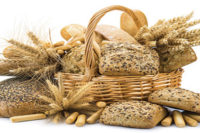Every new year, people make resolutions to break bad habits or start good ones. Generally, everyone is focused on self-improvement and wellness. By the time you read this, we will be in the second week of February, and you know what that means? Most New Year’s resolutions are starting to fail. While many of us will let these often-unattainable resolutions slide, health and nutrition trends provide an important window to consumer behavior. And it seems food trends in 2019 are predicted to follow a similar course of awareness and improvement, as Mintel has predicted that one of these will focus on healthy aging (“Mintel Announces Three Global Food and Drink Trends for 2019,” November 14, 2018).
As the population of people over the age of 60 continues to grow, there’s a stronger interest in longevity. Many better-for-you trends focus on certain age groups, but it’s important to note that people should not wait before taking an interest in how the food choices they make can impact their health later in life. And, although Americans are aging, they are looking to stay healthy and active.
Grain foods provide vital nutrients for a long and healthy life. Eating sufficient carbohydrate fuels the body and allows protein to be used for other important functions, instead of being broken down for energy. If you do not consume the needed amount of carbohydrates, your body can only rely on protein for energy, making the protein less available for things like keeping muscles healthy and strong. Formulating with a variety of high-fiber grains helps consumers of those products maintain a healthy gut and gastrointestinal function.
Carbohydrate-rich foods like grains also nourish the brain. Emerging research in adults 35 to 55 years old suggests dietary patterns low in whole grains and high in red meat, processed meat and fried foods are linked to cognitive decline at older ages. In a study with older adults aged 60 to 80 years, whole grain and cereal fiber intake were associated with lower total percent body fat and “belly fat.” Whole and enriched grains provide key vitamins and minerals to the body, including B vitamins thiamin, niacin, riboflavin and folate, as well as the minerals, iron, zinc, selenium and magnesium. Whole grains provide antioxidant and anti-inflammatory nutrients. Reducing oxidative stress by consuming whole grains is a likely mechanism for the protective effect from diseases associated with aging.
Fad diets come and go, but bread is forever.




